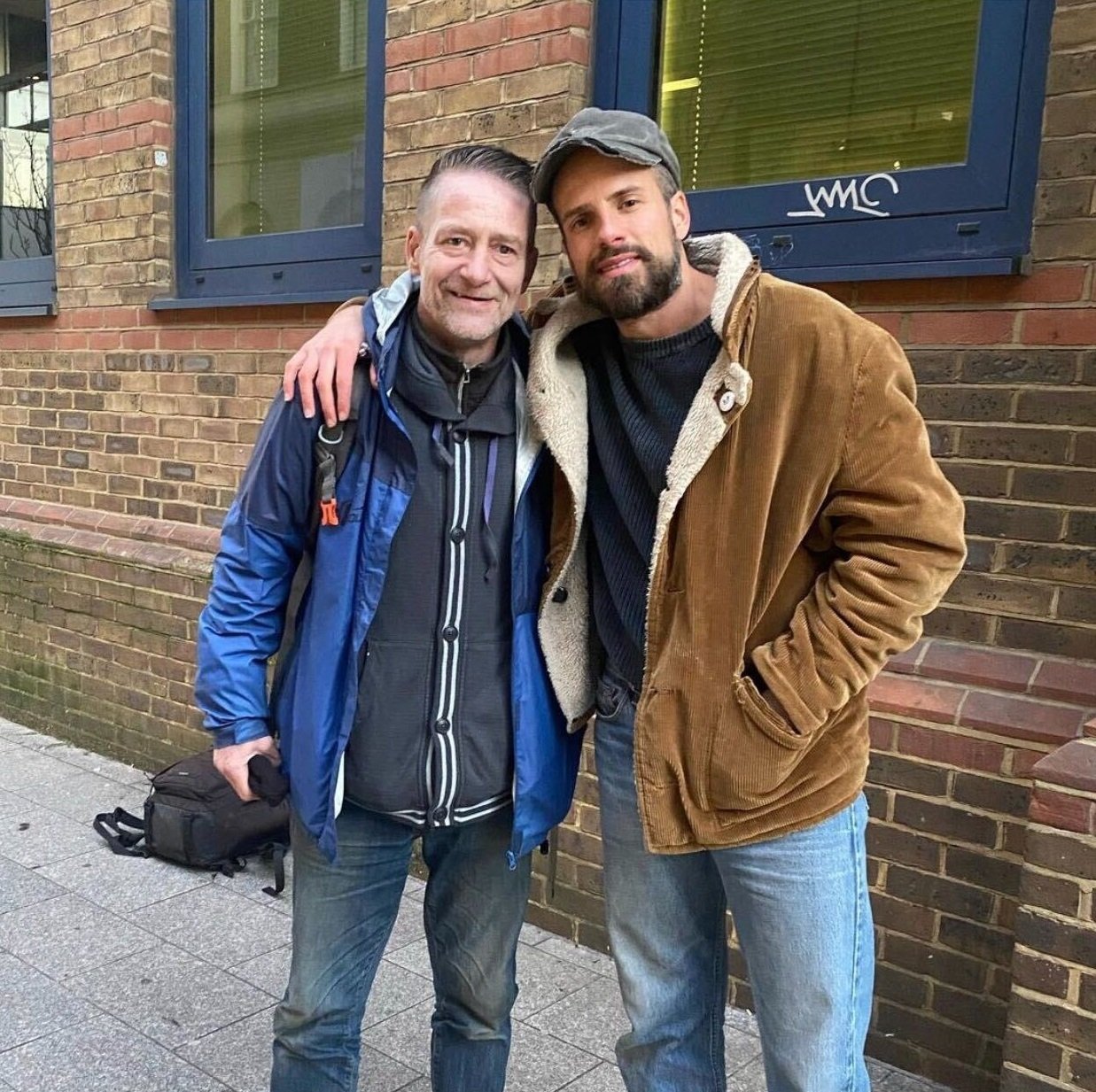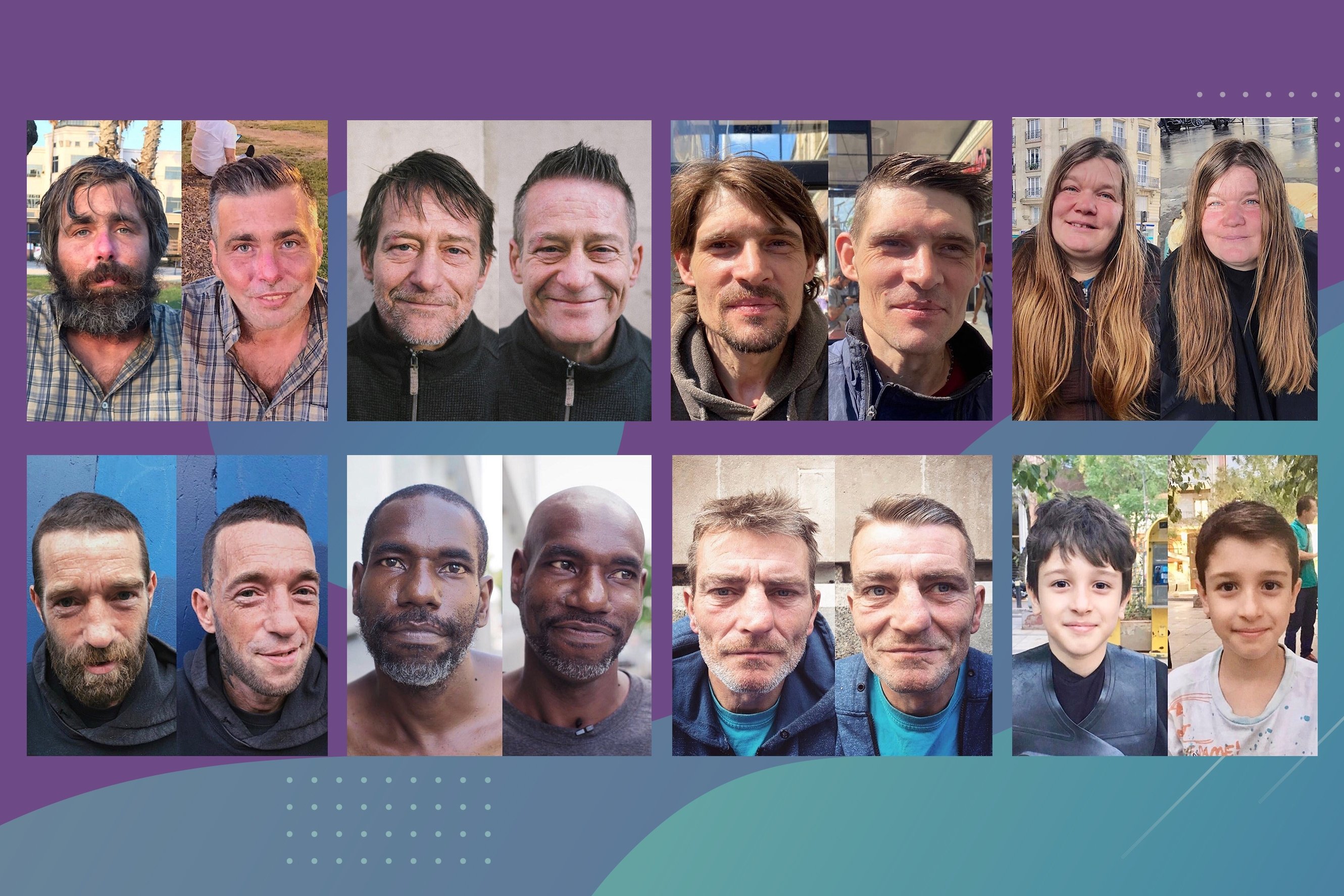© Turkuvaz Haberleşme ve Yayıncılık 2026
How much do we look around while walking down the street? Maybe we've become indifferent because we're used to seeing what's around us. But part of 34-year-old Briton Joshua Coombes' daily routine includes going out every morning to have a look around! He finds his homeless "customers" on the streets and by offering them complimentary haircuts, he shows the world that it is not at all difficult to put a small smile on people's faces.
Well, Flannery O'Connor, it turns out that "a good man is not hard to find."
Joshua's mission has become a worldwide phenomenon. With 155,000 followers on social media, he spreads goodness across the world daily. His story has been covered by many media moguls such as The Washington Post, The Independent and the BBC. Even National Geographic’s documentary series "The Story of Us" with Morgan Freeman covered his work.
We tend to think that, above all, homeless people need a place to live or money to buy their next meal. Yet, Joshua's crusade for embracing those overlooked in society shows how much they need human interaction and acceptance.
I had the chance to interview Joshua on the occasion of NEXT, a special youth event put together by TRT World Forum, a subsidiary of Turkish public broadcaster TRT World. We had an amicable conversation with "capeless by still super" Joshua about his #DoSomethingForNothing movement that highlights "how we all can play a positive role in the lives of those around us."
Explaining how he got into hairdressing, he says: "I needed a job and money. I was finishing playing music about like the mid-twenties. I was just at a point in my life where I wanted to do something new. I'd never really thought about hairdressing apart from this way. My mom and grandma went to the salon when I was younger but it was suddenly really great for me. I saw this guy checking this girl's look in the mirror, and I was just like, maybe I could do that."
Being a part of a punk band, I believe, Joshua's sense of inclusivity and avid humanity comes from this culture. "Punk music is something that maybe looks like a certain genre and it has a certain image but it's about togetherness and acceptance. It's about putting your arm around people who might seem a bit different, who might be on the fringes of society," he says.
He meets a lot of people than working in the salon. His workplace is the streets of London where homelessness is a growing issue. When I asked him what was the most inspiring story among all the people he has met, he told me about David who has suffered a lot due to the loss of his beloved.

"So the stories and the people I meet are incredible, but I think one that always stays with me is my friend David, who I met in London. He's one of the first people I got to know. He had a family a few years before I met him. He had a job, he even ran his own business. So on the outside, his life looked very much like anybody else 'normal,' whatever that means."
"If you are interested in looking after people and trying to make them a member of society to contribute, you cannot include the holistic conversation. And for someone like David, it isn't just about providing him with a home necessarily. It's about trying to recognize that he's valuable to himself again. One of the reasons why he's important to me is his optimism, his smile, and the way he is to people around him. He sits in this spot and there are thousands of people sometimes walking past, but he's always saying hello and smiling at people and saying, 'How are you?' And he's taught me that. Even if you have nothing to give, have yourself to give a person," he explains.
Joshua doesn't regard this as the full solution. He just wants to emphasize that it is an achievable act for everyone depending on their skills.
"Even though we're talking about world issues and inequality in this forum, the change first starts within. The first thing you've got to do is recognize you are important and you can give some to this world and that your time here means something," he adds.
He always heads out with little expectations. "Can I go out and have a conversation with someone? Can I go and say, 'Hi, how are you?' The goal is, that maybe I can get to know a stranger. Maybe I can have a conversation. And then sometimes that leads to a haircut. And if it does, sometimes that leads to a friendship," he says.
Yet that's how it goes. You see people now and again and they come in and out of your life. However, the most important thing for Joshua is to document what he does and tell the stories of the people he has met.
"A haircut is not going to change someone's life and put a roof over the head, but, it's a way of being able to feel like you're going out and participating with the people around you," he says.
"I got a phone call recently from someone I met on the street and I hadn't seen him for two years cause we lost contact. I used to go and cut his hair a few different times and then I didn't see him anymore. And he called me and he had a job and like I had someone to live with and he said to me, that's great. You know, someone just come into recognized me as a human being that day. It was enough to give me another perspective," he says.
"I could speak mainly for like the United Kingdom and America, where I've spent a lot of time, there are services for people in this position and people who are vulnerable, but the way these places look sometimes are not built to help someone with their life by that. I mean, this person, David, I was talking to about, his room's about the size of a prison zone. Hasn't got any windows, there's no common area to cook together, to eat together. If you can't spend time with people, you feel more isolated," he explains.
"Even what help looks like in some places it's such a minimal level of care according to my experience. You need to feel meaning in your life. You need to feel like you are waking up and you can at least pursue joy and feel some kind of happiness. And it's not just that stuff around you, it's your connections to the people in your life. It's about feeling like you you're heard, feeling like you have some sense of belonging," he adds.

In fact, as we get more swept up in modernity, Joshua reminds us how valuable it is to communicate with people and spirituality, which are among the values forgotten especially in the 21st century.
"We expect people to be able to get on with their lives and move on to their next step, without providing with any of the things that we need in our own life. All you have to do is look to yourself, feel like what is it?" he says.
His work is not limited to haircutting on the streets of London. During his last visit to Turkey, he worked for a lot of people who are displaced. He plans to wander around with his stuff and get on the street in Turkey as well.
During our interview, Joshua recalled a refugee child about the same age as his nephew that he had seen in Istanbul. "When you see a child, it just brings it back home. For, when I look at adults, I still think of them as this child. Maybe when they've got like a beard like me now, or they've got gray hairs, but they were this kid. When I see that kid on the street, it makes me think that he's gonna grow up into a man one day," he says.
Joshua has recently published his book "Do Something for Nothing: Seeing Beneath the Surface of Homelessness, Through the Simple Act of a Haircut." The book contains a series of stories of different people he has met in some countries in Europe and America but also places like India and Mexico. He says that the important when putting together people's stories in a book is to try to forget about the word "homeless" and just focus on them as individuals. He is quite proud of the way that it turned out.
With COVID-19 restrictions lifting, he wants to continue with the art exhibitions. He mainly works with his friend Jamie, they go out together and meet people on the street. Jamie paints portraits of people and the pieces become part of the series. Rather than being like gray and sad, these people are painted in beautiful colors Joshua explains.
"These people who are living on the street and are homelessly painted and kind of immortalized in some way that used to be reserved for aristocrats and kings," he adds.
He also looks forward to working on a documentary, to leave something permanent to the world. Scrolling through social media, how much of the information do we remember that we see daily? I believe that Joshua's work deserves to be remembered as it reminds us that we are all the same at the end of the day.
"We may have very different views, but let's not fall into this trap of division and being pit against one another. Because we all feel the same things," remarks Joshua.
So, here is an open invitation for everyone to do something for nothing, whatever it may be!
